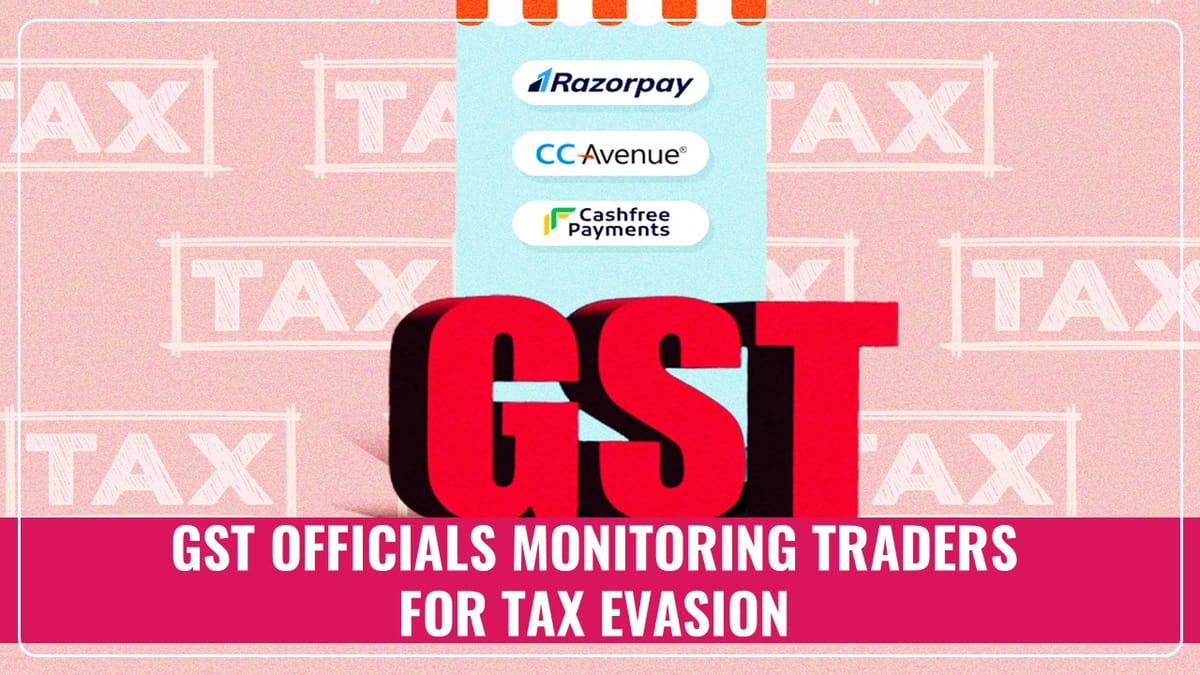Reetu | Aug 21, 2024 |

GST Officials tracking Traders evading Tax through Digital Payments
The digital payments’s rapid growth has also raised monitoring of online businesses due to an increase in tax evasion cases, according to persons familiar with the situation.
The Directorate General of Goods and Service Tax Intelligence (DGGI) is collaborating with startups, payment aggregators, and payment gateways to ensure that merchants are selling the correct products with the correct GST invoices, according to officials.
“Small merchants sometimes engage in tax evasion by selling lower-taxed products while also selling higher-taxed products. The tax authorities intend to catch such merchants,” stated a Mumbai-based identity verification firm that assists payment aggregators in dealing with identity fraud.
The government is cracking down on such rogue merchants and the Reserve Bank of India wants payment aggregators to be more vigilant with their consumers.
Platforms typically sign up merchants as a laundry service or an e-commerce portal, but after a few months, they start offering betting or gaming services, according to a top executive at a fraud detection platform. The upside is that a laundry service will have a lot lower GST rate than a betting business, according to the individual.
According to those said above, authorities must maintain track of such developments and ensure that merchants pay the appropriate taxes.
While payment aggregators perform obligatory due diligence on merchants during onboarding, industry sources say continuous monitoring is still inadequate.
“Monitoring is usually done through formal notices. The payment platform files GST based on the merchant’s declaration. If authorities discover an irregularity in volume or reporting, they contact them, and platforms cooperate in any way they can,” said a top executive at a major payment firm.
The RBI has stated in its draft guidelines for payment aggregators (PAs) that PAs will continue to supervise merchants.
“The PA shall continuously monitor the merchant’s transaction activities. Based on its transaction pattern, the merchant will be moved to a higher CDD category. “Upon migration, the PA shall immediately conduct additional due diligence on the merchant,” the regulator stated.
In case of any Doubt regarding Membership you can mail us at [email protected]
Join Studycafe's WhatsApp Group or Telegram Channel for Latest Updates on Government Job, Sarkari Naukri, Private Jobs, Income Tax, GST, Companies Act, Judgements and CA, CS, ICWA, and MUCH MORE!"